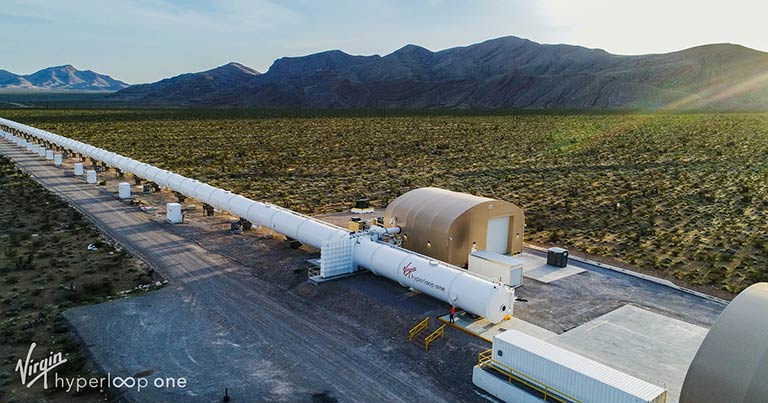
Virgin Hyperloop One has signed an agreement with Spain’s Administrator of Railway Infrastructures to open an Advanced Technology Development and Testing Center in the Andalusian region of Spain. It will be the company’s first European development facility and is valued at approximately $500 million.
In return for this investment, Virgin Hyperloop One, whose Head of International Business Development, YJ Fischer, will address delegates in the conference at Future Travel Experience Global 2018 (10-12 September, Las Vegas), will obtain €126 million in public aid through loans and grants to help establish the new centre, to advance Virgin Hyperloop One’s technology development and testing, and to stimulate regional economic growth and job creation.
“With its robust transportation, aerospace, and high-tech sectors in turn paired with outstanding regional talent, Spain is an ideal fit for Virgin Hyperloop One’s Advanced Technology Development and Testing Center,” said Rob Lloyd, CEO of Virgin Hyperloop One. “By investing in the development and testing of Virgin Hyperloop One, Spain is extending its long-tradition as an innovative, global transport leader. We are excited to partner with such a forward-thinking country in developing the next generation of transportation.”
The Virgin Hyperloop One Advanced Technology Development and Testing Center will be located in the Andalusian region of Spain at Bobadilla, a village of the municipality of Antequera, in the province of Malaga. With over 9,000 companies in transport and logistics, the second largest aerospace cluster in Spain, and 20,000 employees in R&D, the new centre complements the advanced transportation, aerospace, and high-tech innovation in the Andalusian region and is expected to be a catalyst for further economic growth. Virgin Hyperloop One estimates that it will hire 200-300 high-tech skilled professionals and that the centre will spur job creation in a broad ecosystem of partners and suppliers in the region.
The 19,000 sqm facility, planned to be open by 2020, will be used to develop, test, and certify components and subsystems to continually improve safety and reliability of hyperloop systems.
“For hyperloop to be commercially viable it needs to be safe and reliable – safety is our number-one priority,” said Josh Giegel, Co-Founder and Chief Technology Officer, Virgin Hyperloop One. “We’ve already been testing and improving our technology for the last four years, including building the only full-scale hyperloop system in the world. Ultimately, the centre will help us deliver upon our first projects and scale to meet future demand around the world.”
Meanwhile, in the United States, Virgin Hyperloop One has also been developing its DevLoop facility. Based in the Nevada desert, DevLoop is the world’s first full-scale hyperloop test site.
YJ Fischer, Head of International Business Development, Virgin Hyperloop One, will deliver a presentation entitled “Extending capacity and enhancing air travel with Hyperloop” at Future Travel Experience Global 2018 (10-12 September, Las Vegas). YJ will speak in a session entitled “The future of travel and guest experiences according to those with disruptive visions” where she will be joined by senior figures from the likes of Japan Airlines, Orion Span, BMW Group Designworks and Munich Airport’s LabCampus. Find out more here >>






